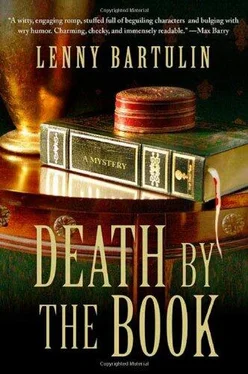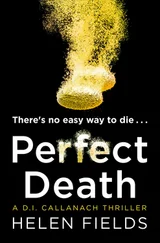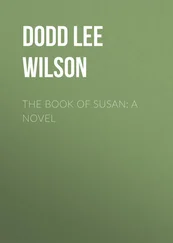Soon it will be as if you never wrote anything at all.
“Sick, isn’t it?” said Celia.
No name, no signature. Jack read the note a couple more times. Would Kasprowicz have written it? It seemed a little indirect. Or a touch too poetic.
“Does your father have any —”
“Enemies?” interrupted Celia. “No. Apart from Hammond Kasprowicz.”
“Other poets?”
“I know what you’re thinking. Petty jealousies and warring factions, all that. The battle for grants and prizes. I know all about it.” She adjusted her cardigan. “But this? Burning another poet’s books? Some of them can be vindictive, Mr Susko, and believe me, they have been. But not to this degree.”
“Have you confronted Kasprowicz about it?”
Celia laughed. “Why? As if he would ever admit it.” Then she shook her head in disappointment and looked up at the ceiling. “And just when there’s interest in Dad’s work again.”
“What do you mean?”
“People have been calling lately, wanting to speak to my father about his poetry. And there have been some enquiries about buying his archive as well.”
“Who wanted to buy his archive?”
“There were three or four calls, I can’t remember exactly who now. University libraries, private collections, that sort of thing.”
Jack frowned, thinking.
Celia looked at him sadly. “Please don’t sell those books to Hammond Kasprowicz.”
“They’re already paid for.”
“Haven’t you been listening?”
“It’s a big call, Ms Mitten. I’d like to hear what Hammond Kasprowicz had to say about it all.”
Celia stood up. Her chair scraped over the floor. She picked up her bag and pulled out a large red purse. She unclipped it and handed Jack a card.
Celia’s Crystal Palace
Bridal Accessories
10b Macleay Street, Potts Point
tel. 93314411 fax. 93314423
email: celias@hotnet.com
“After you realise what kind of man Hammond Kasprowicz is,” she said stiffly, “please call me.” She put the purse back into her bag. She looked around the bookshelves and then at Jack. “I assume you must have some regard for the written word.”
“Sure,” he replied. “When I can sell it.”
“Well, if it’s just about the money —”
Jack held up his hand. “No need to be rude, Ms Mitten. All you’ve given me so far is a story. It’s not a bad story. In fact, it’s pretty good. But I’m sure Hammond Kasprowicz could give me one, too.”
“Are you saying that I’ve made all this up?”
“I’m saying family sagas have a tendency towards melodrama.”
Jack watched her neck warm up again, a patchy blue-red like blackberry juice. An old girlfriend once told him that it was a sign of energy blocked in the throat: not saying what you wanted to say. Jack’s ex had been interested in stuff like that.
“My father is at home, Mr Susko, quite ill and depressed,” said Celia Mitten firmly. “I have a package of his burnt books hidden under the laundry sink. You are more than welcome to come by and see for yourself. I would be happy to offer you some afternoon tea for your trouble.”
Jack decided on his pale grey suit with the stovepipe pants. A dark plum shirt, black leather shoes and a splash of cologne. Lois moaned the whole time he was getting ready. He pushed her through the back door and put a bowl of food on the ground. She looked at him like he was joking.
“Hey, what can I say? I’ll try not to be late.”
The front gate was open. Jack walked through and along the driveway. Ten metres from the house, security lights came on and lit the front yard like a stadium. Next door a dog went berserk. Jack almost dropped the wine bottle in his hand. Obviously he did not possess the nerves required for burglary. Another career option off the list. He climbed the front steps, crossed the verandah, and knocked. A few moments later, the front door opened.
“You must be Jack,” said a dark-haired woman with a hand on her hip. She was tall, and she was not wearing heels. “Hi, I’m Sabine.”
Jack smiled. “Nice to meet you, Sabine.”
She had an open, friendly face, its only blemish a pale scar about two centimetres long on the side of her chin. No doubt it was why she was wearing a little too much makeup for somebody dressed for exercise. Her hair was tied in a ponytail that had begun to come loose, and she wore a tight red tracksuit. She shook Jack’s hand. There was a rock on her ring finger about the size of an avocado pip.
“Come in.”
Jack followed her down the hall. Sabine was full-bodied, looked old enough to have had a teenager or two, but possessed the sass of a younger woman in her walk.
“We were late getting back from the gym,” she said over her shoulder. “Poor Anna’s all last-minute rush, I’m afraid.”
She turned left into another hallway and led Jack into the kitchen. It was a large, airy room with an island bench, stainless steel appliances, and varnished timber cupboards over two walls. There were cream granite benches; the floor was of oversized terracotta tiles. A large, watercolour still life hung on the far wall: a bowl of bruised fruit, some vegetables, and a dead bird. Through some glass doors to his left, Jack noticed a paved patio area outside, half-lit by a spotlight attached to a corner of the house.
Sabine picked up a bottle. “She’s probably just fixing her hair. Glass of wine?”
“Cheers.” Jack put his own bottle down.
She poured a generous amount and passed it to him. Then she held up a small white bowl. “You have to try these olives. They’re fabulous. Do you like olives?”
Jack nodded, picked one out.
“I love them.” She popped a juicy kalamata into her mouth. Her lips were full and fleshy and slightly unbelievable. Her eyes were a rich brown and shone like billiard balls under lights. She rested a hip against the bench and looked Jack over. She chewed the olive and thought about what she saw. Jack sipped his wine and glanced around like he was interested in kitchen design.
Sabine dropped the pip into an ashtray. “That’s a lovely suit,” she said. “Ermenegildo Zegna?”
“Is that the little Italian guy in Leichhardt?”
“Sorry?” she replied. Then she smiled, shook her head. “Oh, yes. Anna said you were a smart-arse.”
“Nice to know she’s been talking about me.”
“Not really. She won’t tell me anything.” Sabine picked up another olive. “Must be serious.”
It was hot in the kitchen. Above the stove an extraction fan made a lot of noise but did very little else.
“So, you work for Hammond then?”
“Not really.”
“Oh?”
“I’m doing a small job for him.”
“And you’re a book dealer or something?”
“Purveyor of fine quality literature not necessarily in immaculate condition.”
“Nice living?”
“Will be. When my rich aunt dies.”
Sabine laughed. “Why do it then?”
“I get to meet interesting people.”
“Like Hammond Kasprowicz? He’s not that interesting.”
“Really?” Jack tried to read her face. Whatever was there was written in lemon juice.
She drank her wine, leaving a faint red stain of lips on the rim. “You know you can’t believe a word he says, don’t you? Believe me, I know. I learned the hard way.” She brought the glass to her mouth again and paused. “I used to fuck him.”
“I see.”
“Well, it was a while ago now. He wasn’t quite so old then.” She laughed and drank more wine. “Neither was I.”
Annabelle Kasprowicz walked into the kitchen. “Have you kept an eye on my risotto?” she said to Sabine, shaking her head.
Читать дальше












